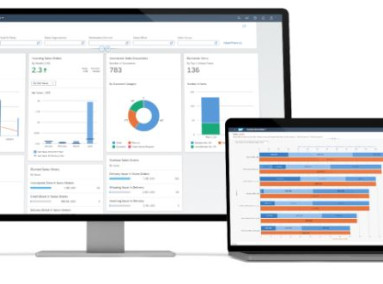IT Audit SAP ERP: The system that transforms your organization's future
23-03-14
본문
In today's competitive environment, companies need to make fast decisions and be highly productive. SAP ERP is a system that meets these requirements, helping companies run their business processes efficiently and make quick decisions. In this article, we'll take a closer look at the different versions of SAP ERP and their benefits.
SAP is one of the software packages with the largest share of the enterprise resource planning (ERP) market.
# Key Benefits of SAP ERP
1. Business process improvement:
SAP's ERP system can efficiently improve business processes. For example, it automates various functions to reduce human errors, enable faster execution of processes, and improve the accuracy and consistency of data.
2. Integration:
SAP's ERP system can integrate and manage various business areas. This ensures consistency of data and helps you get the information you need to make decisions faster.
3. Flexibility:
SAP's ERP system can be customized to meet the different needs of a business. This helps companies adapt the system to their needs and achieve better business results.
4. Business Intelligence (BI):
SAP's ERP system provides business intelligence (BI) capabilities for data analysis. This feature helps companies collect and analyze data to gain business insights.
# Key features by version.
SAP offers several versions of its ERP package. Among them, the most popular versions are
1. SAP S/4HANA:
SAP's newest ERP package that uses memory-based database technology to provide fast, real-time data processing. It provides real-time data processing and analytics, which is useful in many business areas to help companies make quick decisions. It also has built-in artificial intelligence and machine learning capabilities to provide better business insights.
2. SAP Business One:
SAP Business One is an ERP system for small and medium-sized businesses from SAP that offers features such as sales, inventory, accounting, and purchasing. It also includes customer management, production management, project management, and more. It's easy to use and affordable, and it integrates and manages different parts of your business and provides business insights. It can also be integrated with other ERP systems from SAP.
3. SAP ERP:
SAP's earliest ERP system, it provides functionality for finance, human resources, production, and more. Formerly known as SAP R/3, it is organized by modules. SAP ERP is used by large enterprises and offers many customization features.
SAP ERP 6.0 is SAP's base ERP system, offering modules for finance, human resources, inventory, production, sales, and more. It is built on SAP NetWeaver technology and offers technologies such as a web-based UI.
SAP ERP 7.0 is part of SAP Business Suite 7 and is built on SAP NetWeaver 7.0, automates business processes, and provides business intelligence. It also uses SAP Fiori UX to provide a user-friendly UI.
4. SAP Business Suite:
One of SAP's flagship ERP packages, it allows you to integrate and manage all sectors of your enterprise. It is organized by modules, each of which covers a specific business area. For example, SAP's Financial Accounting module provides full functionality for accounting and finance.
5. SAP All-in-One:
SAP All-in-One is an ERP package aimed at small and mid-sized businesses that integrates and manages various business areas and can be customized to fit your business needs.
6. SAP R/3:
One of SAP's classic ERP packages, it is organized into modules, each of which covers a specific business area. It has been used by many companies for a long time.
7. SAP Business ByDesign:
This is a cloud-based ERP package from SAP that integrates and manages business areas such as sales, inventory, accounting, human resources, and more. It is flexible and scalable, and since it is cloud-based, it has low implementation and operational costs.
You can choose from a variety of ERP packages from SAP to meet your business needs. Each package offers different features and functionality and can be customized to fit your organization's size and needs. The choice of ERP system depends on your organization's size, business needs, and industry environment, so it's important to choose the right ERP system based on your organization's size and needs.
Next time, we'll go into more detail about the benefits of SAP S/4HANA in practice.
Image Source: https://www.sap.com/korea/products/erp/s4hana.html


